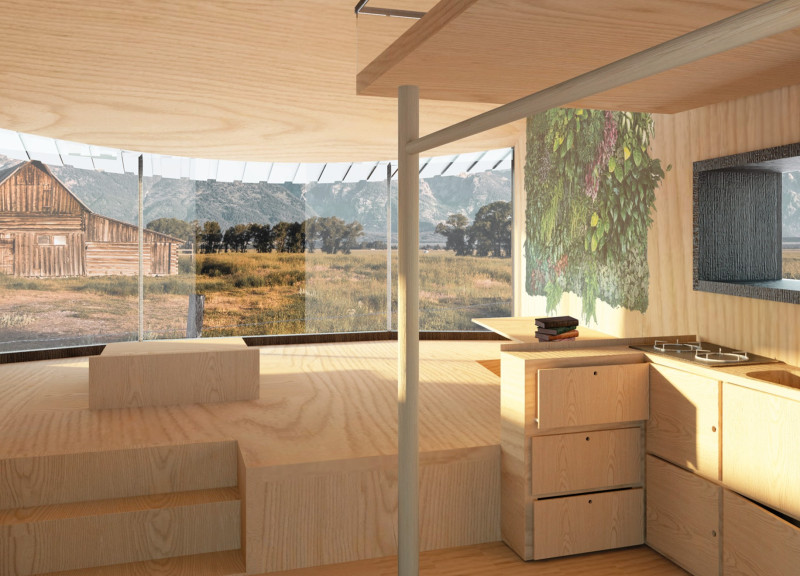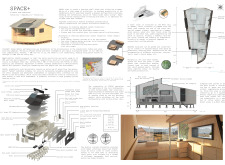5 key facts about this project
One of the defining aspects of SPACE+ is its innovative approach to spatial arrangement. The layout incorporates open living areas that can be easily modified based on user requirements, emphasizing a fluid integration of daily functions. Multi-purpose furniture elements offer storage and workspace that can transform according to the inhabitants' needs, accommodating both privacy and communal interaction.
Through the careful consideration of the site's natural environment, SPACE+ employs a unique water management system that collects and repurposes rainwater. This approach reduces dependency on potable water and utilizes evaporation for interior cooling, minimizing reliance on mechanical systems. The incorporation of aeroponic systems for food production allows the occupants to grow their own produce using significantly less water than traditional methods, creating a self-sufficient food source within the home.
Innovative sustainability practices are evident in the materials selection for SPACE+. The structure features recycled corrugated metal roofing, high-density cellulose and polyisocyanurate foam board for insulation, and triple-glazed windows that provide thermal efficiency while allowing natural light to penetrate the interior spaces. The combination of renewable energy sources, including solar panels and energy-efficient appliances, enhances the sustainability profile.
The design embodies a thoughtful relationship with its surrounding environment. By orienting the structure to optimize natural ventilation, SPACE+ takes advantage of prevailing winds, maintaining a comfortable indoor climate without excessive reliance on mechanical heating and cooling systems. This design strategy prioritizes both energy efficiency and occupant well-being.
For those interested in exploring SPACE+ further, examining the architectural plans, architectural sections, and architectural designs will reveal a comprehensive understanding of the project's intricacies. Engaging with the architectural ideas behind SPACE+ offers valuable insights into contemporary approaches to adaptable living in urban contexts.























